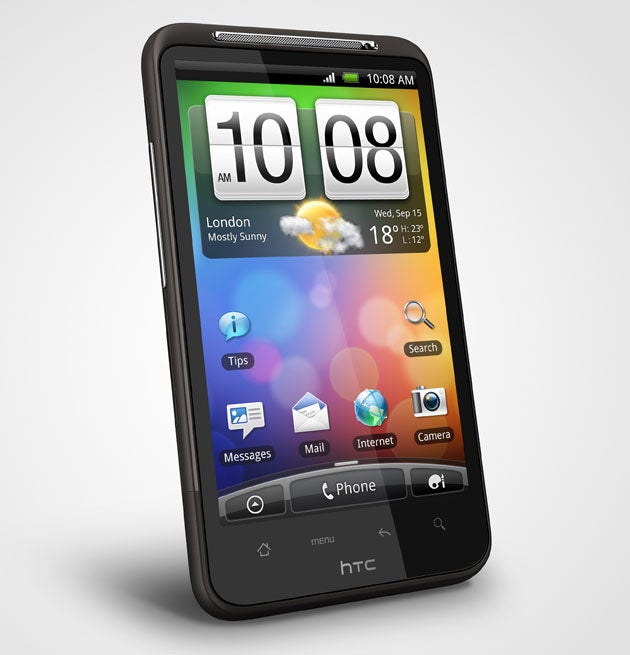Your support helps us to tell the story
From reproductive rights to climate change to Big Tech, The Independent is on the ground when the story is developing. Whether it's investigating the financials of Elon Musk's pro-Trump PAC or producing our latest documentary, 'The A Word', which shines a light on the American women fighting for reproductive rights, we know how important it is to parse out the facts from the messaging.
At such a critical moment in US history, we need reporters on the ground. Your donation allows us to keep sending journalists to speak to both sides of the story.
The Independent is trusted by Americans across the entire political spectrum. And unlike many other quality news outlets, we choose not to lock Americans out of our reporting and analysis with paywalls. We believe quality journalism should be available to everyone, paid for by those who can afford it.
Your support makes all the difference.Ultra-smartphones that react to your moods and televisions that can tell it's you who's watching are in your future as Intel Corp's top technology guru sets his sights on context-aware computing.
Chief technology officer Justin Rattner stuffed sensors down his socks at the annual Intel Develop Forum in San Francisco on Wednesday to demonstrate how personal devices will one day offer advice that goes way beyond local restaurants and new songs to download.
"How can we change the relationship so we think of these devices not as devices but as assistants or even companions?" he asked.
Handheld devices could combine already common geographic location technology with data from microphones, cameras, heart and body monitors and even brain scans to offer their owners advice that today only a friend or relative could give.
"Imagine a device that uses a variety of sensory modalities to determine what you are doing at an instant, from being asleep in your bed to being out for a run with a friend," Rattner said. "Future devices will constantly learn about who you are, how you live, work and play."
Rattner also demonstrated a television remote control that figures out who is holding it based on how it is held, and then learns the viewer's entertainment preferences.
The world leader for decades in microchips for servers and desktop computers, Intel is hurrying to catch up in the lucrative market for smartphones like Apple's iPhone and Research in Motion's Blackberry.
Telephones with email, global positioning and media players are pointing the way to a future where ever more functions are packed into ever smaller mobile devices.
The smartphone industry, including technology giants like LG and Samsung, is likely to sell 270 million phones this year and grow 25 per cent in 2011, according to market research company IDC.
"I think you can expect to see features that support context-aware computing starting to appear in Intel products in the not-too-distant future," Rattner said.
But analysts say Intel faces an uphill battle getting its microchips into new phones as Nvidia, Marvell and Qualcomm have already made headway with cheap, lower-power processors based on designs by ARM Holdings.
Rattner conceded that questions about privacy and people's willingness to be intimate with their computers will have to be resolved before the future generation of smartphones he described takes off.
"If you think identity threat is a problem today, imagine when your whole context is readily available on the Net," he said.

Join our commenting forum
Join thought-provoking conversations, follow other Independent readers and see their replies
Comments